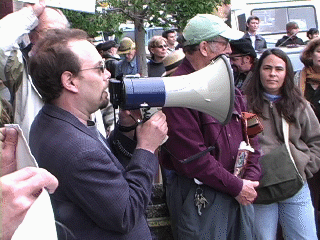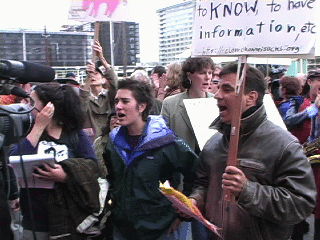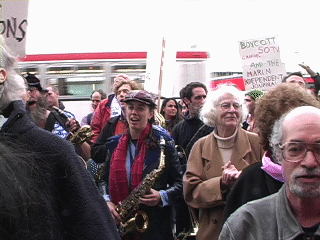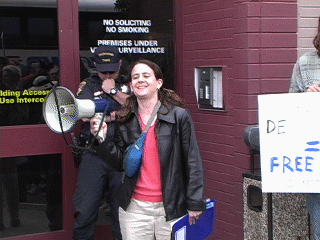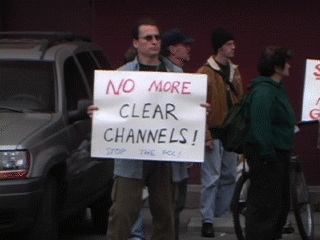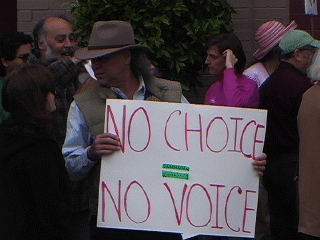CC Vote In: We Lose 3 to 2 – Media Diversity Loses Straight Across The Board
Hey guys. We know that we all worked really hard on this, and at least we made our voices heard, even if it turns out that they just don’t care what we think.
We should be used to that by now from this regime. Michael Powell is, of course, another arm of the Shrub Regime that believes that the wealth of our nation belongs in the hands of a few select individuals that “know best” for everyone else.
Well you can bet that this isn’t over yet. It just means War. War on media conglomerates that don’t care about their responsibilities to the public as broadcasters. If these companies are going to be in charge of everything we see and hear over television and radio, it’s going to be up to us to keep watchful eye over them. And I don’t mean a friendly, understanding watchful eye, I mean more like a watchful eye that they have to contend with on a regular basis in order to conduct business in a profitable manner.
To my knowledge, there are still some requirements that stations have to meet in order to fulfill their public interest requirements as broadcasters. Let’s determine exactly what those requirements are and start organizing inspection teams that travel from station to station checking their public records and sending the inevitable violations to the FCC.
“Like weapons inspectors?” a friend said to me when I told him this idea.
“Yeah, very much like weapons inspections.” I replied. “This is War, isn’t it?”
Here’s a link to the real video of today’s meeting at the FCC.
Here’s a story by Frank Ahrens for the Washing Post with more details:
FCC Votes to Ease Media Ownership Rules
An ideologically fractured Federal Communications Commission voted 3 to 2 along party lines today to relax or eliminate some key media ownership rules, allowing a newspaper to own a television station in the same city and broadcast networks to buy more stations at the national and local levels…
The vote has engendered public opposition by lawmakers, consumer and advocacy groups and unaligned citizens who fear that further media consolidation will make it more difficult for those with minority viewpoints to get their message out. On Friday, the FCC’s voice- and e-mail systems were temporarily shut down by a deluge of public comments. The agency has received more than 500,000 e-mails and postcards opposing the changes…
For better or worse, the proposed regulations are to be known as the “Powell Rules.”
“I have had to make peace with myself, to know with every fiber of my being and intellect and faith with the law that this is the right answer, at least in the short term,” Powell said. “Though it’s not the popular answer.”
Others think the answer is both unpopular and wrong.
“I’m glad they won’t be remembered as the Copps rules,” said Copps, who has opposed Powell’s attempts to relax media ownership rules at nearly every turn. “They will take the media and the country into very perilous waters. I think we are damaging localism, diversity and competition, making it harder for alternative viewpoints and information to see the light of day.”
Copps and Adelstein suggested several edits to the proposed rules changes, such as requiring merged media properties to spell out what public service programming they would produce and holding them accountable. Their modifications were rejected by the Republican majority, which said the suggestions came late in the process and were based on flimsy legal justification.
